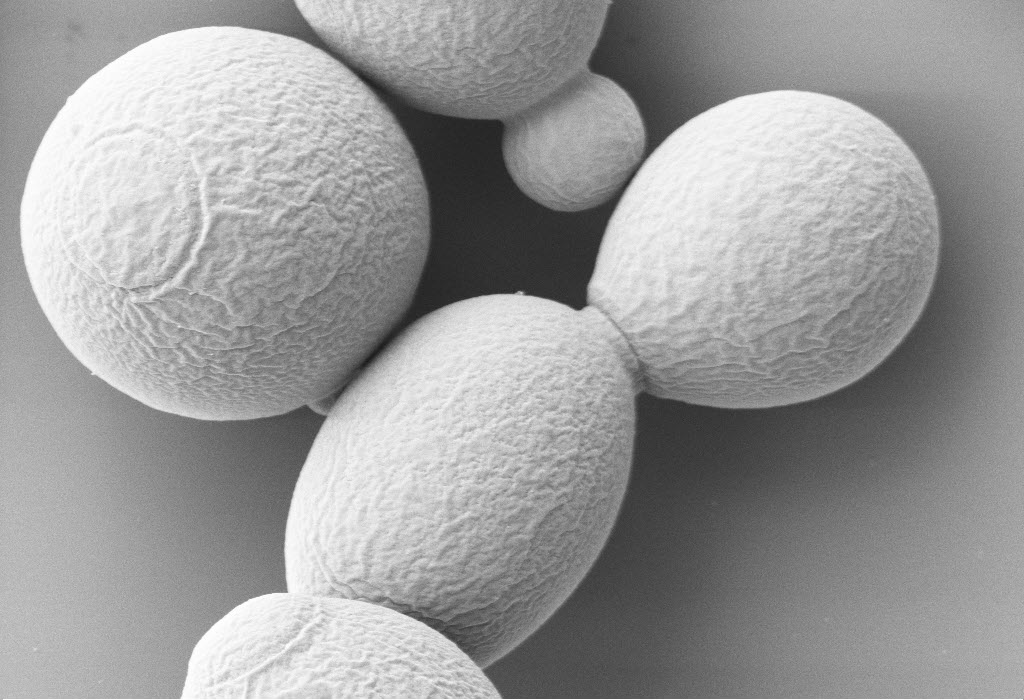Nutritional yeast, an exceptional source of natural and functional nutrients
Nutritional yeast (also known as “nooch”) is a form of deactivated yeast that has been widely used for decades as a seasoning and nutritional supplement. Remineralizing and revitalizing, nutritional yeast is an excellent aid to maintaining health and well-being due to the many nutrients it contains, which include proteins, essential amino acids, fibres, vitamins, minerals (Ca, Mg, P, K, etc.) and trace elements (Fe, Cu, Mn, etc.). Its exceptional composition in terms of bioavailable minerals and B group vitamins, enables the prevention of deficiencies. As a result, nutritional yeast is particularly popular with vegetarians and vegans, who also appreciate its high protein content (35-40%) which provides the 9 essential amino acids that the human body cannot produce.
To boost its nutritional profile, some nutritional yeasts are fortified with certain nutrients (vit B12, Fe, Zn, Cr). In this case, they are grown in a medium rich in selenium, chromium or zinc, for example, which results in naturally enriched yeast.
Available as a powder, flakes, capsules or tablets, nutritional yeast as a food or as a food supplement is known for its many health and beauty benefits:
Yeast, a natural solution to reducing foods’ salt content
Excessive salt consumption is one of the major diet-related health problems recognized by the World Health Organisation (WHO). The use of certain yeast extracts can significantly reduce the salt content of foods. The WHO recommends reducing global salt consumption by 30% by 2025. Yeast producers have developed a solution to replace salt in bread using their expertise in fermentation.
Yeasts as probiotics
According to the WHO, probiotics are live microorganisms that, when ingested in sufficient quantities, have positive health effects beyond the traditional nutritional effects.
As early as 1953, the probiotic yeast S. boulardii was sold as a medicine to prevent acute diarrhoea.
It is now prescribed in more than 90 countries for both children and adults to treat gastrointestinal problems such as antibiotic-associated diarrhoea, travellers’ diarrhoea or intestinal disorders caused by Clostridium difficile and Helicobacter pylori [Hosjak 2018].
Its various mechanisms of action have been well documented by more than 100 clinical studies demonstrating its effectiveness.
More recently, a strain of S. cerevisiae has been shown to have beneficial effects on digestive comfort (intestinal pain, bloating or regulation of transit) as well as protective properties for the vaginal flora. It was patented for a digestive application in 2008 and a vaginal application in 2013.



Multiple, well-documented benefits
The health benefits of these probiotic yeasts are multiple:
Antimicrobial action: S. boulardii inhibits the growth of opportunistic bacteria and their attachment to intestinal cells [Czerucka 2019].
Neutralizing effect: S. boulardii releases specific proteins that deactivate toxins from opportunistic bacteria [McFarland 2010].
Integrity of the intestinal barrier: intestinal epithelial cells play an important role in combating opportunistic bacteria: their close links ensure the intestinal barrier remains impermeable. Dysbiosis is a condition in which the links can be affected and the risk of contamination by microorganisms increases. An ally of the gastrointestinal system, S. boulardii preserves and strengthens these links [Terciolo 2019].
Support of healthy microflora: S. boulardii protects the intestinal mucosa’s metabolism and ecosystem by helping the body to absorb nutrients, promoting the release of specific enzymes [Pais 2020], participating in the increase of short-chain fatty acids (SCFA) and contributing to antioxidant activity [Gaisawat 2019].
Immune stimulation: 70% of the immune system resides in the gut. Saccharomyces boulardii has a demonstrated ability to balance the host microbiota, thereby contributing to the improvement of host immune parameters such as immunoglobulin levels [Qamar 2001]. This is a potential strategy to positively influence the immune response [Stier 2016].
Anti-inflammatory modulation: S. boulardii is involved in modulating the inflammatory process by stimulating the anti-inflammatory response or inhibiting pro-inflammatory signals to maintain the right balance [Kelesidis 2012].
Improved digestive comfort: Many people suffer from recurrent digestive disorders (pain, bloating, transit problems), often with a real impact on the quality of their daily life. The use of a specific strain of S.cerevisiae can significantly reduce intestinal pain and bloating [Cayzeele-Decherf 2017]. This strain also helps to regulate transit disorders, in cases of constipation and diarrhoea [Ravichandran 2020].
Improved gynaecological health: a specific strain of S.cerevisiae balances and optimizes the vaginal flora, protecting against vaginal infections caused by bacteria, and other yeasts of the genus Candida albicans, as demonstrated and published in several preclinical and clinical studies [Cayzeele-Decherf 2017].
